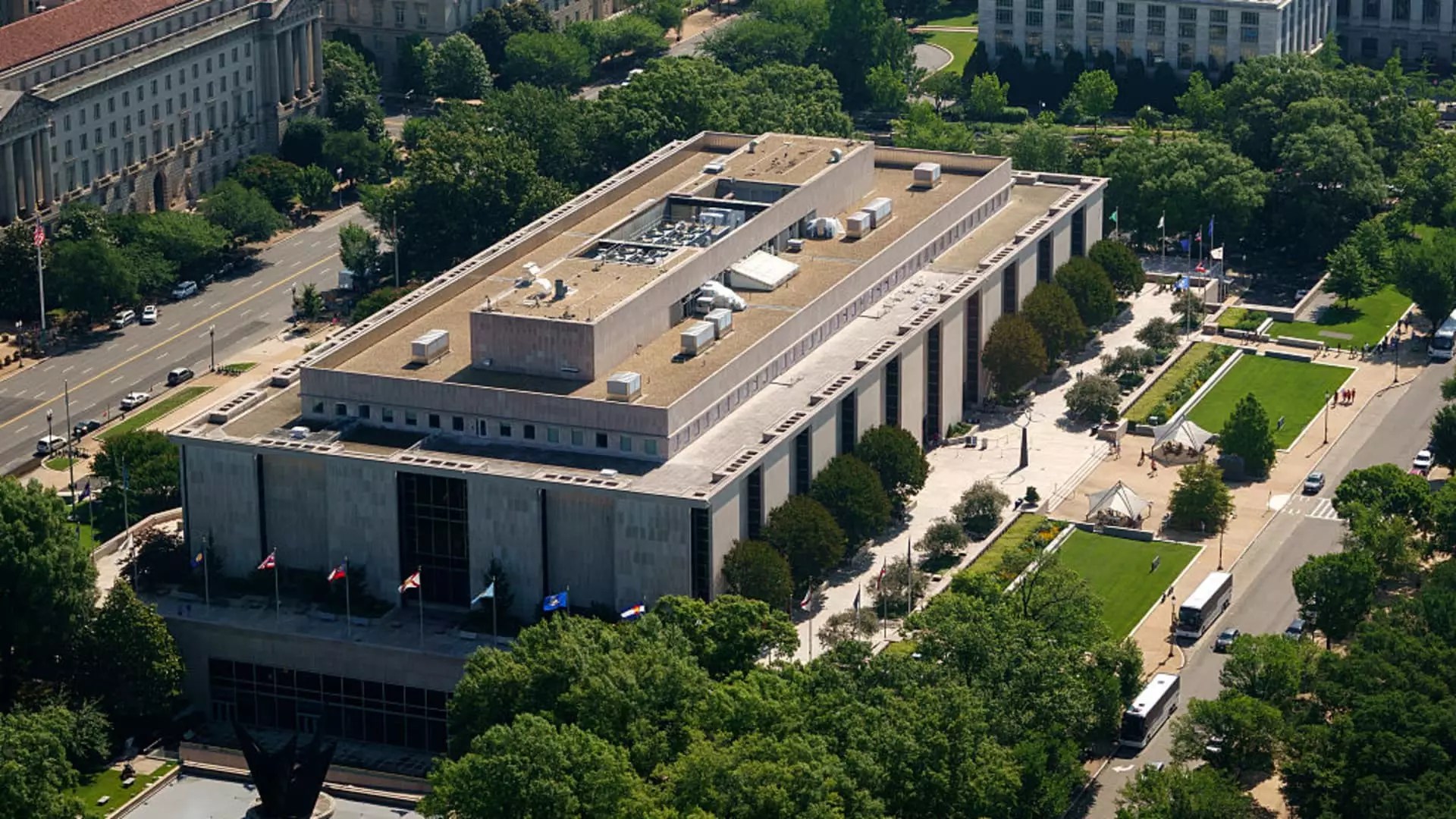In recent endeavors, former President Donald Trump has shown a disturbing propensity for weaponizing governmental influence to suppress narratives that don’t align with his political vision. His latest announcement—that he has instructed his legal team to emulate tactics used against universities to purge what he calls “woke” content from museums—reveals a troubling desire to manipulate cultural institutions for ideological conformity. This effort isn’t merely about making a political statement; it threatens the very fabric of intellectual freedom and historical accuracy. By targeting institutions like the Smithsonian, which serve as custodians of our collective memory, Trump’s approach risks eroding the diversity of perspectives that are vital for a nuanced understanding of American history.
His characterization of these institutions as “out of control” and the framing of their content as harboring “horrible” messages about the nation’s past reflect an alarming attempt to rewrite or sanitize history. It’s revealing that his focus is on silencing narratives about slavery and systemic oppression, which are crucial for understanding the complex reality of America’s past. If such narratives are reduced or removed under pressure from political patronage, we stand to lose the opportunity for genuine reflection and growth. Controlling the stories told within national museums could turn these cultural landmarks into propaganda tools, serving only a sanitized, one-sided version of history.
The Use of Funding as a Political Weapon
President Trump’s threat to leverage financial pressure against the Smithsonian exposes a dangerous tactic: weaponizing federal funding to silence dissent. Museums and cultural institutions are traditionally repositories of diverse ideas, histories, and contexts. To threaten their funding, especially when most of that funding comes from taxpayers, is an abuse of governmental power. Such strategies resemble the manipulative tactics used against universities, where funding cuts and investigations are wielded to influence academic freedom and curtail controversial or challenging viewpoints.
This approach sets a precedent that deters honest inquiry and open debate. When the state uses money to enforce ideological conformity, it undermines the very principles of freedom of expression and intellectual independence. It suggests that only narratives approved by political authorities are acceptable, threatening the foundational American values of pluralism and free discourse. Allowing political figures to dictate the content of museums sidesteps critical engagement and reduces these spaces to tools for propaganda rather than sites of learning and dialogue.
The Broader Implications for Democracy and Culture
The push to purge “woke” elements from museums and other cultural institutions signifies more than a political skirmish; it hints at a broader attack on the diversity and complexity of American history. Such efforts serve to diminish the multiplicity of voices, especially those that represent marginalized communities and uncomfortable truths. If we allow these narratives to be erased or altered under the guise of protecting national pride, we risk impoverishing our collective understanding of who we are and how we arrived here.
Furthermore, this movement enshrines a dangerous form of cultural nationalism that equates patriotism with ideological conformity. It risks turning historic institutions into propaganda outlets dubbed “patriotic” while excluding dissenting voices. The ideological battle here is not merely about content; it’s about who controls the narrative of national identity. An authentic, mature democracy depends on embracing complexity, scars, and the uncomfortable truths that foster growth. Suppressing these stories in the name of patriotism or political convenience undermines that foundation.
The Real Threat: Suppression, Not Curation
The essence of a healthy society lies in its capacity to confront its past honestly. Attempts to rewrite history to fit current political narratives distort reality and hinder societal progress. The risks imposed by Trump’s campaign to purge “woke” content extend far beyond museums—they threaten to set a precedent for intellectual censorship that could spill into every corner of cultural and academic life.
Museums and other cultural institutions act as mirror images of society’s values and struggles. When these reflections are altered or sanitized, the result is a shallower, less truthful version of history that fails to serve future generations. Political interference aimed at controlling these narratives compromises their integrity and discredits the institutions themselves. For a nation built on principles of freedom and dialogue, these actions represent a slide toward authoritarianism cloaked in patriotic rhetoric.

